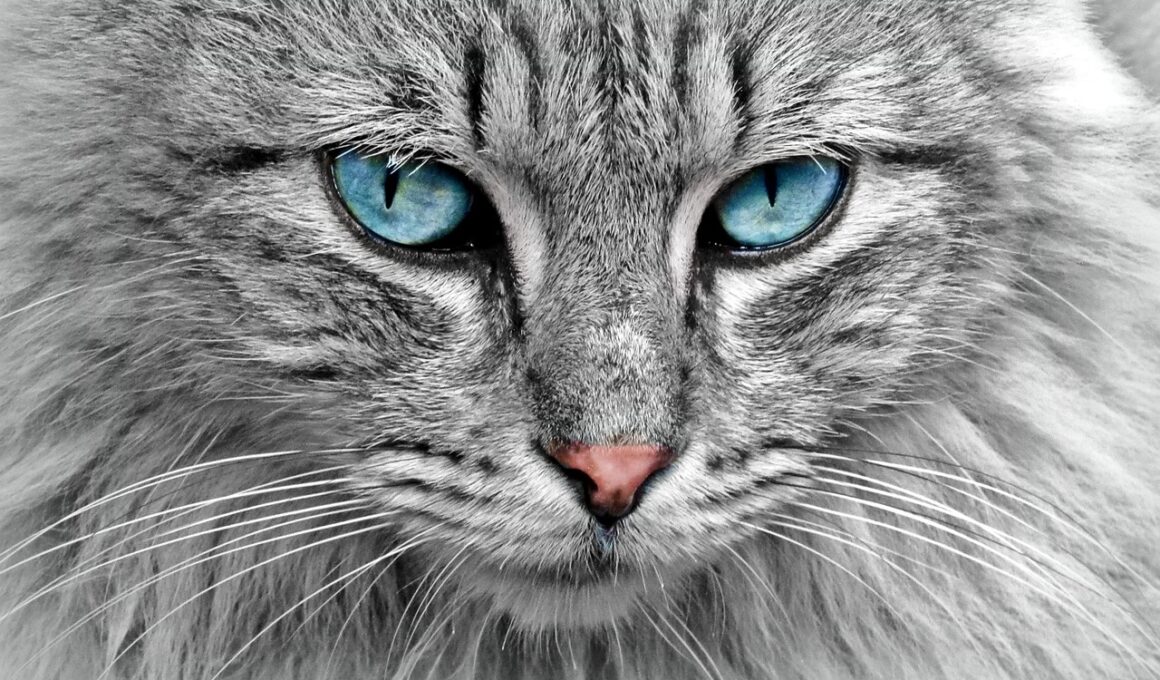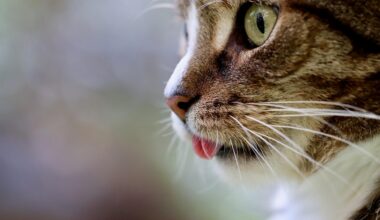Understanding Natural vs Synthetic Vitamins on Cat Supplement Labels
When examining cat vitamin supplement labels, it’s essential to comprehend the differences between natural and synthetic vitamins. Natural vitamins are derived from whole food sources, providing nutrients in their most beneficial form. Cats, being obligate carnivores, thrive on these natural nutrients. On the other hand, synthetic vitamins are chemically manufactured and may not always be utilized efficiently by a cat’s body. Understanding these distinctions can greatly affect your pet’s overall health. The source of vitamins can affect their bioavailability, which refers to the extent and rate at which the active ingredient or active moiety is absorbed and becomes available at the site of action. Natural sources often come with a range of effective synergistic compounds that support the vitamins’ overall function in the body. When selecting a supplement, check that it lists specific whole food ingredients. Nutrients obtained directly from fruits, vegetables, or meat generally exhibit higher bioavailability compared to lab-synthesized counterparts. By using products rich in natural ingredients, you ensure your cat receives more complete nourishment. Always discuss with your vet about incorporating vitamin supplements into your cat’s diet.
To further understand the distinctions, let’s examine the implications of synthetic vitamins that can be listed on labels. Synthetic vitamins might be presented as isolated compounds, often printed in a format that may seem appealing. For instance, a label may feature familiar terms like Vitamin A, C, or E, implying that they support health benefits. However, isolated vitamins often lack other nutrients present in foods that support absorption and utilization. They can sometimes be less effective or even evoke an adverse reaction in certain cats. Ingredients such as these can also raise concerns regarding their authenticity in truly mimicking natural sources. Additionally, one should be cautious about synthetic additives or preservatives that might accompany these vitamins. Assessing the company’s reputation and the overall formulation of the supplement is vital. Take time to read reviews and consult with fellow cat owners before choosing a product. Ultimately, while synthetic vitamins may serve a temporary purpose, prioritizing natural options generally leads to long-term health benefits. Remember to observe your cat’s reactions to any new supplements and consult your vet with questions about efficacy and safety.
Identifying Quality Ingredients
Identifying quality ingredients can be crucial when reading cat vitamin labels. Many pet owners are unaware that vitamin labels may feature vague terminology such as ‘natural flavors’ or ‘proprietary blends.’ These terms can mask the exact composition of the vitamins included within the supplement. It’s best to look for specific and recognizable whole food ingredients. A label that lists carrot powder, spinach extract, or fish oil is generally preferable to one that mentions a ‘blend of vitamins.’ Whole foods are more effective due to the synergistic relationship between various nutrients and enzymes. Furthermore, examining for third-party certifications ensures that the product has undergone rigorous testing for quality and integrity. Labels that carry the approval of organizations such as the Association of American Feed Control Officials (AAFCO) typically indicate a product that meets established nutritional standards. Ultimately, selecting a well-reviewed brand with transparent ingredient sourcing is beneficial. Make sure to seek supplements that emphasize natural ingredients with clear labels. This ensures not only the well-being of your cat but also your peace of mind as a responsible pet owner.
Another key factor when assessing vitamin supplement labels is understanding the appropriate dosage requirements. Typically, recommended dosages are indicated directly on the product label to guide pet owners in their administration. However, figures can vary based on your cat’s size, age, and activity level, elevating the importance of consulting with your veterinarian. Over-supplementation can inadvertently result in toxicity, particularly with fat-soluble vitamins such as A, D, E, and K. Symptoms of excess can be severe and detrimental to your pet’s health, ranging from lethargy to more alarming complications. Conversely, some cats may require added nutritional support, particularly if they have specific health problems or dietary restrictions. Discussing your cat’s individual health situation and dietary needs with your vet will help clarify any queries about vitamin supplementation. Additionally, a daily log of your cat’s diet and any observable changes can enable both you and your vet to make informed decisions about adjustments to their vitamin intake.
Recognizing the Importance of Omega Fatty Acids
Recognizing the importance of Omega fatty acids on labels can lead to richer supplementation options for your cat’s overall health. Omega-3 and Omega-6 fatty acids play vital roles in maintaining softness of the coat, reducing inflammation, and improving overall cellular function in cats. Many cat owners might overlook these important fats, solely focusing on vitamins such as A and C. When examining labels, sources like fish oil, flaxseed oil, or krill oil indicate a beneficial addition to your cat’s diet. However, confirm that these ingredients are non-GMO and sustainably sourced to ensure both efficacy and ethical considerations. Defined ratios between Omega-3 and Omega-6 fatty acids are important for maintaining balance within your cat’s diet, as too much of one fatty acid can lead to nutritional imbalances causing issues like skin problems. Consulting with your veterinarian can also shed light on your cat’s needs concerning omega supplementation. Paying attention to these details on labels will help create a nurturing environment for your cat to thrive.
As you navigate the realm of cat vitamins, consider the potential benefits of probiotic inclusion. Some supplement labels may proudly list probiotics as active ingredients, designed to enhance digestive health and overall vitality. Probiotics can help restore gut flora and support the immune system, making them incredibly valuable for cat wellness. Certain labels will specify the types of probiotics used, which can affect efficacy; therefore, looking for terms like Lactobacillus and Bifidobacterium can be encouraging. However, make sure the product delineates a specific amount of CFUs (colony-forming units) to evaluate its effectiveness. Cat owners should always examine third-party research backing the claims made by brands regarding probiotic benefits. As with other ingredients, more transparency is often a sign of a high-quality product. Although probiotics can be beneficial, they should not replace a balanced diet. When combined with proper nutrition, they can provide valuable support to your cat’s overall health routine. By keeping an informed approach to your cat’s supplements, you contribute to their longevity and improved quality of life.
Conclusion: The Right Choice for Your Feline
In conclusion, making the right choice for your feline’s vitamins involves careful scrutiny and understanding of various factors regarding label information. Natural versus synthetic vitamins, quality ingredient sourcing, dosing requirements, and the inclusion of omega fatty acids and probiotics all contribute to the overall effectiveness of a vitamin supplement. Always remember to prioritize brands that emphasize transparency and integrity in their labeling practices. By considering each aspect of nutrition and well-being, you’ll ensure the product you select complements your cat’s specific dietary needs. Regular dialogue with your veterinarian can also provide guidance tailored specifically to your pet’s health situation. Engaging with your cat’s unique preferences and observable reactions to different supplements can significantly enhance their journey towards optimal health. Ultimately, informed choices empower you as a pet owner, establishing a trustworthy relationship with your cat’s dietary supplement strategies. With diligence, you can promote your feline friend’s health and happiness for years to come. Make every effort to remain educated about every nutritional element contributing to their well-being.
This closing section further emphasizes the importance of careful label reading for your cat’s health.


